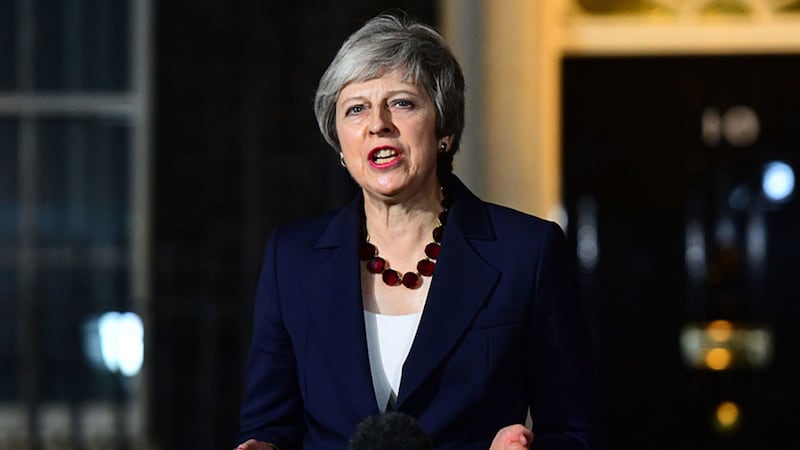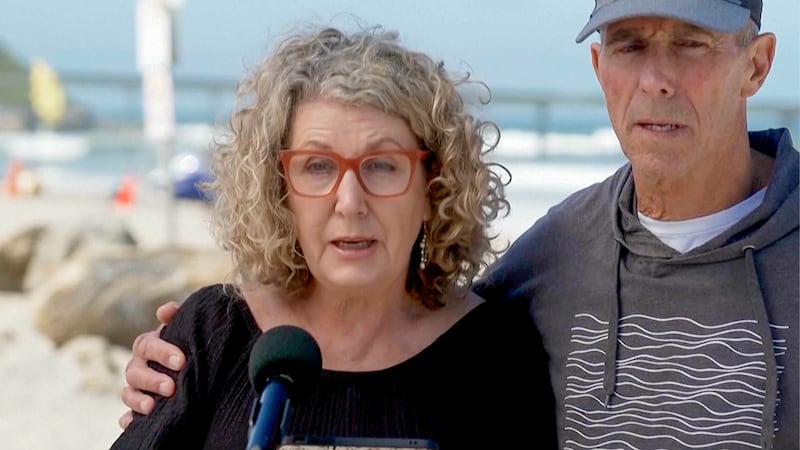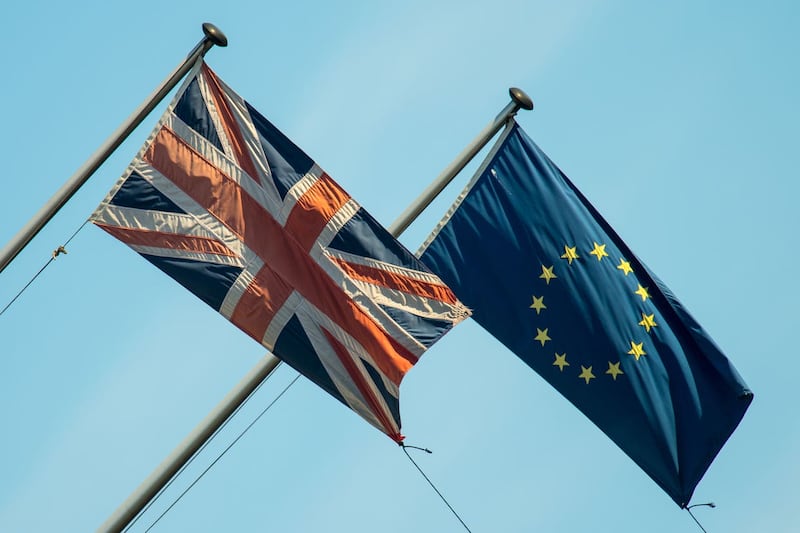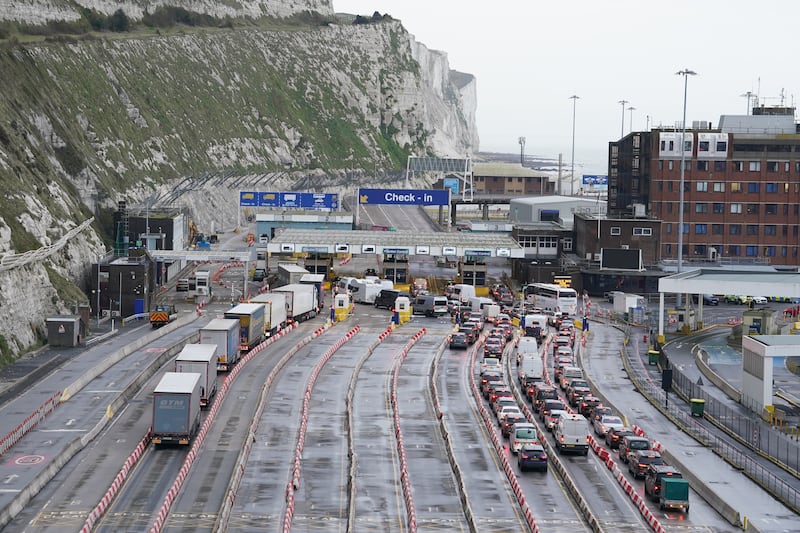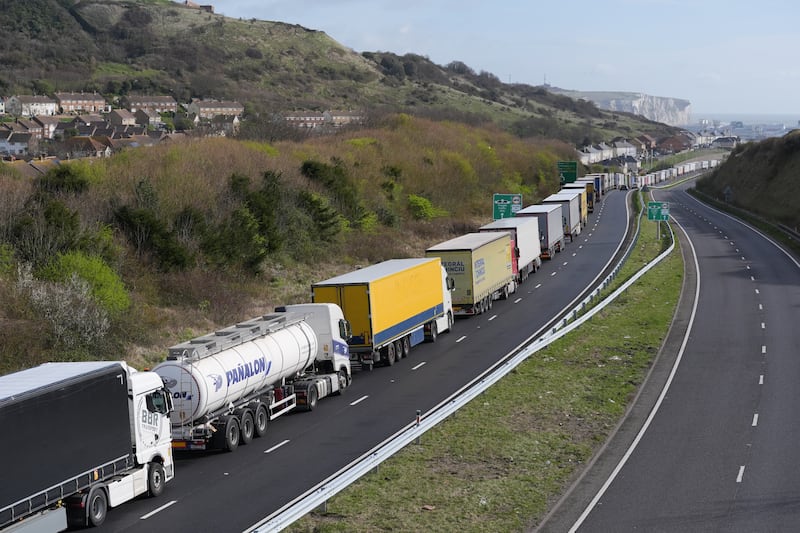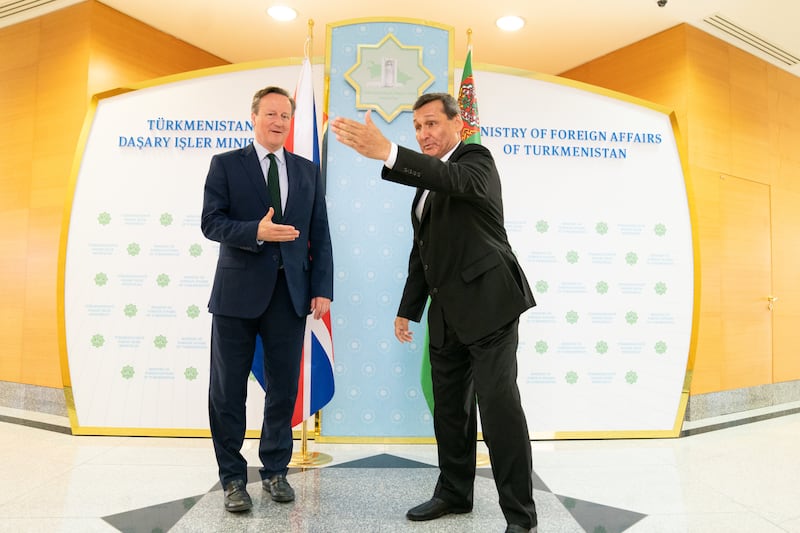THERESA May's cabinet has given its blessing to a draft agreement on the terms for Britain's withdrawal from the European Union, as well as an outline political declaration on the future relationship.
The agreement was announced by the Prime Minister on the steps of 10 Downing Street after a marathon five-hour meeting with ministers which stretched on far beyond its expected time.
It includes provision for a "backstop" arrangement from January 2021 establishing a "single EU-UK customs territory" to apply until a new trade deal is implemented, but Northern Ireland would also remain aligned to single market rules that are "essential for the avoidance of a hard border" - a key sticking point for the DUP which opposed new checks at the Irish Sea..
The UK would only be able to leave this arrangement with the agreement of the EU.
The cabinet approval clears the way for a special Brexit summit in Brussels - probably on November 25 - for EU leaders to approve the deal, followed by a crucial House of Commons vote in which MPs will hold Britain's future in their hands.
However, it was reported up to 10 ministers expressed concerns about the deal and prominent Brexiteers immediately pledged to vote against it.
The DUP also described it as a "poor deal" as leader Arlene Foster and deputy leader Nigel Dodds met the prime minister on Wednesday night.
East Antrim MP Sammy Wilson said it was "a deal she (Mrs May) said she would never accept".
"I think people will be appalled at her words."
Speaking moments after the meeting's conclusion, Mrs May acknowledged there would be "difficult days ahead" and announced she will outline the deal to MPs in parliament on Thursday.
And she added: "This is a decisive step which enables us to move on and finalise the deal in the days ahead.
"These decisions were not taken lightly but I believe it is a decision that is firmly in the national interest."
She concluded: "I firmly believe, with my head and my heart, that this is a decision which is in the best interests of the United Kingdom."
Senior ministers met amid a storm of condemnation for the proposed deal from Brexit-backing Tories, with prominent Leaver Peter Bone warning Mrs May in the House of Commons that she risked losing the support of "many Conservative MPs and millions of voters across the country".
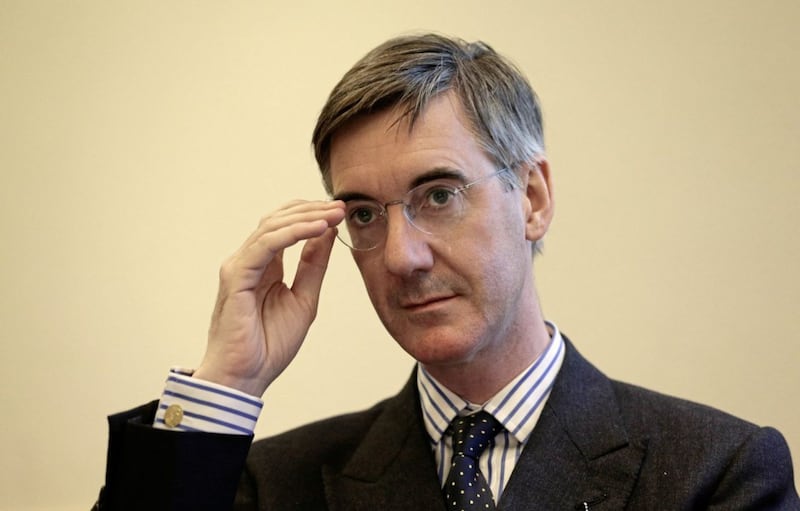
The chair of the European Research Group of Eurosceptic Tories, Jacob Rees-Mogg, wrote to Conservative MPs calling on them not to support Mrs May's plan, arguing it would see the UK "hand over £39 billion to the EU for little or nothing in return".
The deal is "unacceptable to unionists", will "lock us into an EU customs union and EU laws", and is "profoundly undemocratic", said Mr Rees-Mogg.
Meanwhile, Arlene Foster, whose DUP party props up Mrs May's minority administration in the Commons, warned the PM there would be "consequences" if her deal treats Northern Ireland differently from the rest of the UK.
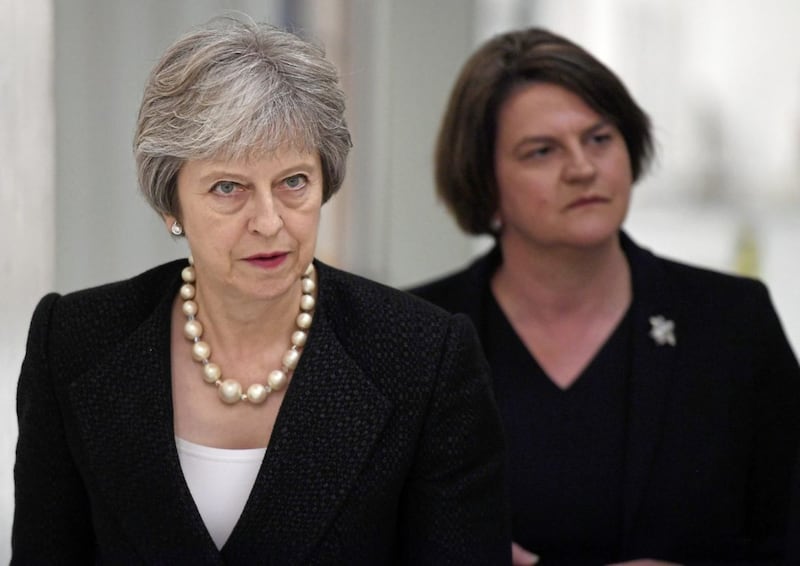
The level of Brexiteer discontent has raised expectations of further letters of no confidence in Mrs May from Tory MPs, with a total of 48 needed to trigger a vote on her position.
Sources within Westminster said the delivery of letters to the chair of the backbench 1922 Committee Sir Graham Brady was "imminent".
Just to be clear: there would be a need for checks on goods travelling from the rest of the UK to Northern Ireland. You can call that "border in the Irish Sea" or not but it is real.
— Fintan O'Toole (@fotoole) November 14, 2018
The DUP overreaching on #Brexit has achieved more progress towards a united Ireland than any other group or political party, since partition in 1921. https://t.co/5svc8Iif5G
— Deirdre Heenan (@deirdreheenan) November 14, 2018
Taoiseach Leo Varadkar said avoiding a hard border had been "one of the most difficult challenges" of the process.
He said the EU and UK would establish a shared customs territory, with Northern Ireland applying some additional rules for goods to ensure a free-flowing border.
The backstop would remain in place "unless and until" a better solution is agreed.
"I firmly hope that we can achieve a better solution and we will be working strenuously to that end," he said.
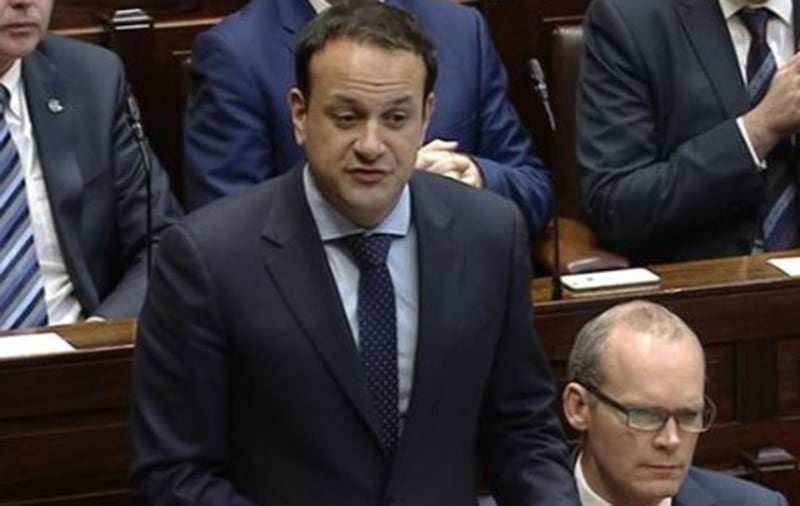
Mr Varadkar hailed Mrs May for "honouring her promise" in relation to Ireland.
"These negotiations have been very tough and a difficult experience for everyone involved and, with this in mind, I want to acknowledge prime minister's May's integrity in honouring her promise to protect the peace process and the Good Friday Agreement, and her commitment of avoiding a hard border. She has been true to her word."
He also argued the deal presented an economic opportunity for Northern Ireland.
"I also believe that the trading arrangements envisaged in the text, if embraced, represent a genuine economic opportunity for Northern Ireland business, with unfettered access both to Great Britain and the EU markets," he said.
Mrs May described the debate around the famous Cabinet table as "long, detailed and impassioned", in an apparent indication that her proposals had come under intense challenge from ministers.
But predicted resignations did not materialise, as Mrs May said ministers had come to a "collective decision" to back the 500-page document agreed by UK and EU negotiators in Brussels.
Speaking against the backdrop of boos and shouts from anti-Brexit campaigners on Whitehall, she said: "When you strip away the detail the choice before us is clear - this deal which delivers on the vote of the referendum, which brings back control of our money, laws and borders, ends free movement, protects jobs, security and our Union, or leave with no deal or no Brexit at all."
The European Commission released the text of the withdrawal agreement - running to 585 pages - on its website as EU chief negotiator Michel Barnier prepared to hold a press conference in Brussels.
Read more:
- The Northern Ireland 'backstop' Q&A
- Brexplainer: Do you know your single market from your customs union?
Commission president Jean-Claude Juncker wrote to European Council president Donald Tusk to inform him that "decisive progress" had been made in negotiations, allowing him to convene a summit of EU leaders.
The European Parliament's Brexit co-ordinator, Guy Verhofstadt, welcomed the "positive progress" in negotiations, describing the draft agreement as "a milestone towards a credible and sustainable future relationship between the EU and the UK".
The European Commission set out details of key provisions in the deal to avoid a hard border on the island of Ireland.
Both the UK and EU will "use their best endeavours" to achieve a future trade agreement by July 2020 - six months before the end of the post-Brexit transition period, said the Commission.
Should this not be possible, the UK and EU could jointly agree to extend the transition period.
Alternatively, they could introduce a "backstop" arrangement from January 2021, establishing a "single EU-UK customs territory" to apply until a new trade deal is implemented, covering all goods except fishery and aquaculture products.
Northern Ireland would remain part of the same customs territory as the rest of the UK and the entire area would be subject to "level playing field" commitments requiring Britain to follow EU rules in areas like animal welfare, environmental and workplace protections.
